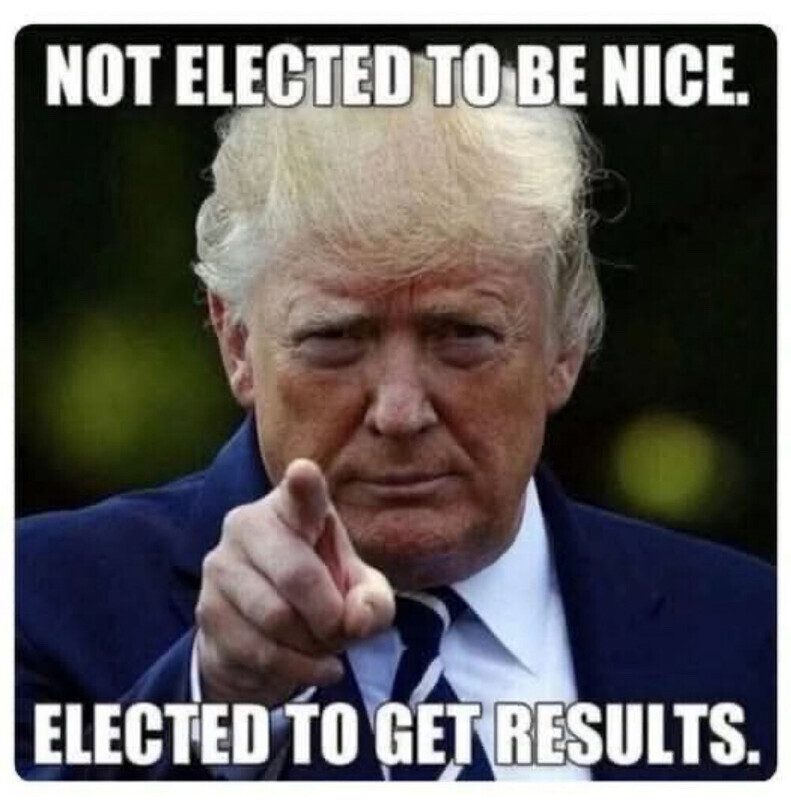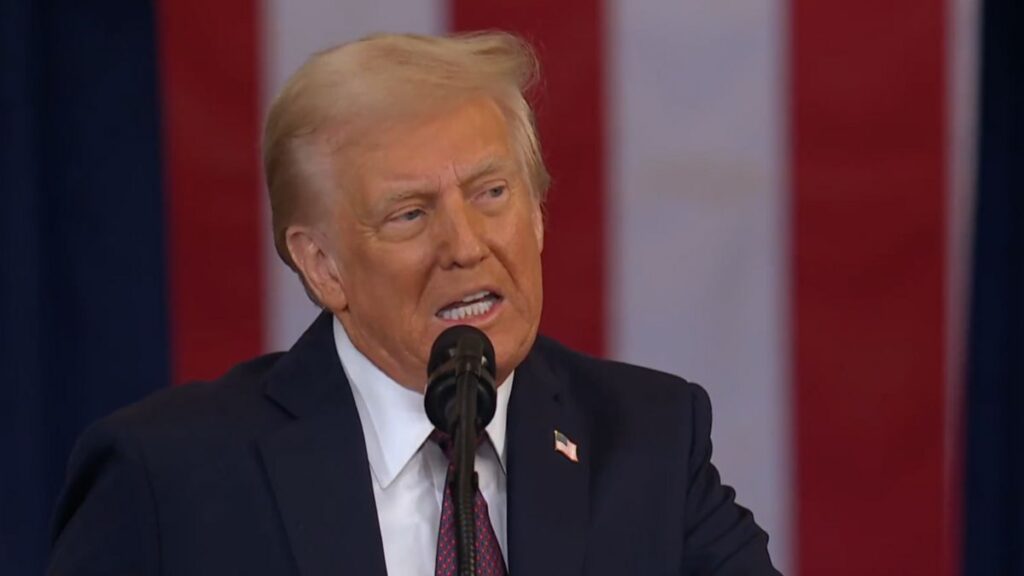Donald Trump’s return to the Oval Office on Monday marked the beginning of a new era in American politics. With his signature decisiveness, the 47th president wasted no time in using his executive authority to reshape the country, undoing key policies from his predecessor, Joe Biden, and pushing forward his own vision of America’s future. From controversial pardons to sweeping changes in immigration and foreign policy, Trump’s actions on his first day raised alarms both at home and abroad.
A New Golden Age or a Step Toward Authoritarianism?

Trump began his second term by proclaiming a “Golden Age” for America, declaring his intent to build on lessons learned from his first presidency. Confident and energized, he used his first hours in office to make bold moves, flexing his executive powers and signaling that he was determined to leave a lasting legacy.
However, Trump’s actions also sparked concerns. His rhetoric, full of grievances and untruths, seemed to reflect his continued fixation on revenge politics, rather than a focus on national unity. The pageantry of his inauguration was matched by divisive speeches and erratic decision-making, raising questions about whether he could pivot from spectacle to meaningful governance.
Read More: The World Watches as Trump Takes Office Again—Tensions, Trade, and the Future of Global Politics
The January 6 Pardons: A Shock to the System
One of Trump’s most immediate and contentious moves was to offer blanket pardons to nearly 1,500 individuals involved in the January 6th Capitol riot. This included everyone from non-violent offenders to the Proud Boys and Oath Keepers extremists, many of whom had been convicted of violent crimes. By signing these pardons, Trump demonstrated his willingness to absolve his supporters, regardless of the severity of their actions.
Critics, including former Speaker Nancy Pelosi, condemned the pardons as an insult to the justice system, especially considering the physical and emotional toll on law enforcement officers who defended the Capitol. The move raised concerns about the erosion of the rule of law and sent a troubling signal that violence and lawlessness could be excused if done in Trump’s name.
A Polarizing Approach to Immigration
Immigration, a core issue throughout Trump’s political career, became one of his first targets upon taking office. In a swift series of executive actions, he declared a national emergency at the southern border, suspended refugee resettlement, and began the process of ending birthright citizenship. Trump also fired key immigration officials and vowed to send troops to secure the border, setting the stage for potential confrontations with Democratic-controlled cities.
While these actions pleased his base, they also set the stage for legal and political battles. Trump’s ability to deliver on his promises, such as mass deportations, will depend on his ability to secure support in Congress. As his policies take shape, the question remains: can he push through these sweeping changes with a slim GOP majority in the House?
Reversing Biden’s Policies: Gender and Diversity Changes
Trump also wasted no time in rolling back policies from the Biden administration, especially those related to gender identity and diversity. He reversed Biden’s executive orders aimed at protecting LGBTQ rights and eliminating discrimination in federal programs. As part of this, the State Department now requires that passport applicants accurately reflect their sex on official documents, signaling a more traditional approach to gender issues.
These moves were hailed by Trump’s supporters but sparked criticism from those who see them as harmful to marginalized groups. For many, this further demonstrated Trump’s focus on catering to his base, even at the cost of inclusivity and progress on civil rights.
The Tech Moguls Move Into the White House
In an unexpected turn, several of Silicon Valley’s biggest names, including Elon Musk, Jeff Bezos, Tim Cook, Sundar Pichai, and Mark Zuckerberg, were present at Trump’s inauguration. Their proximity to the new president signaled a dramatic shift in the tech world, with many former Democratic supporters now aligning themselves with Trump.
Trump justified this move, arguing that these tech giants, who control vast amounts of information, should be enlisted to help promote American interests in an increasingly competitive global landscape. However, critics raised concerns about the potential conflicts of interest and the dangers of concentrating too much power in the hands of a few tech moguls.
Trump’s Global Power Play
Trump’s return to the international stage immediately shook global leaders, as he used an Oval Office press conference to make bold claims and outline his foreign policy. He demanded NATO members increase their defense spending to 5% of GDP, a move likely to upset European allies already grappling with economic challenges. Trump also escalated his rhetoric over the Panama Canal, claiming it had been “gifted” to China and vowing to take it back. His comments underscored his isolationist tendencies and desire to rewrite global agreements to favor the U.S.
Other foreign policy moves included labeling Mexican drug cartels as foreign terrorist organizations and hinting at military action to combat them. Trump also raised the prospect of using tariffs as leverage, threatening to impose 25% duties on Mexico and Canada starting in February, despite previously calling tariffs the “most beautiful word.”
The Impact of Tariffs and Trade Wars

Trump’s talk of tariffs immediately drew attention, particularly as he promised hefty duties on goods from Mexico and Canada, threatening a trade war in North America. While tariffs are often seen as a tool for strengthening domestic industry, they typically raise prices for consumers and can lead to inflation. Trump’s decision to hold off on imposing tariffs on China—while suggesting they might come later—indicates that he views these trade measures as part of a broader negotiation strategy.
Though Trump claimed tariffs would bring financial benefits to the U.S., the reality is more complex. Higher tariffs could lead to increased costs for American consumers, particularly on basic goods. If Trump cannot navigate these challenges successfully, the aggressive use of executive powers might end up backfiring.
Read More: TikTok’s Temporary Block Lifted: How Trump’s Actions Are Shaping the App’s U.S. Destiny







